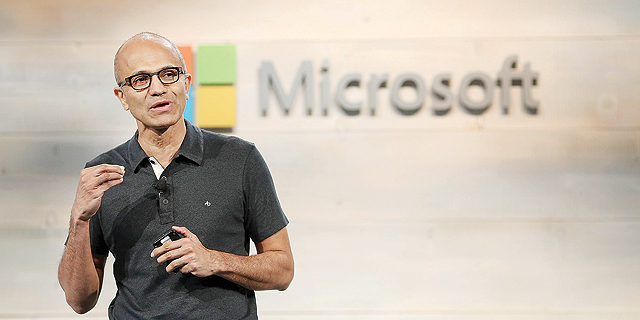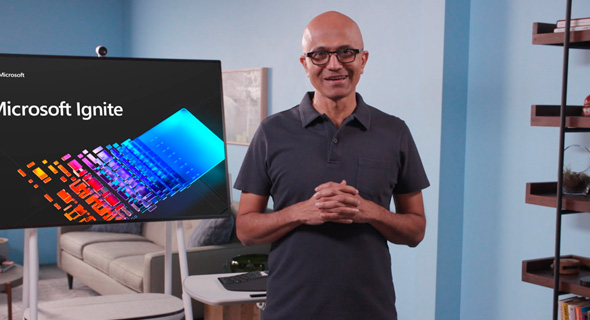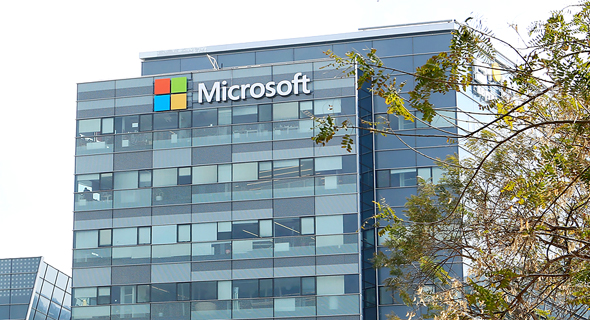
Microsoft unveils new cyber solutions at its annual conference – some developed in Israel
Ignite 2020, Microsoft’s annual conference, was held online due to the Covid-19 pandemic. Although no brand-new or groundbreaking technologies were unveiled, the meeting allowed for the introduction of a number of innovations, including the rebranding of the company's cyber security solutions and two cloud security products developed at the Development Center in Israel.
The first cyber solution Microsoft introduced is the Azure Security Center Multi Cloud. It’s designed to provide information security for all types of clouds (e.g. Amazon, Google), as it’s not limited to working specifically with Microsoft cloud. The development was led by engineers from Microsoft's Innovation and Development Lab in Nazareth. The idea is to allow users to get a unified picture of their information security situation in general, including all the corporate cloud resources and the variety of vendors they work with. Microsoft’s security services have been rebranded as Azure Defender and provide a threat detection and response monitoring system.
The second solution presented is Azure Sentinel, which is designed to detect an attack by analyzing user behavior anomalies. This is perhaps not an innovative solution as similar solutions have been presented in the past by various other companies. But Microsoft's solution is tailor-made for the users of its products. According to the company, the new development adds analytics capability, data collection capabilities and risk intelligence to the existing tools. Additional new capabilities include: searching, adding and tracking threat signs, and creating a threat list to identify and thwart threats such as restricted IPs, protected systems, critical assets, dangerous users, risky hosts.
Other newly unveiled cyber solutions include additional capabilities, the unification of Microsoft 365 security solutions and Azure Security, and Microsoft Defender which is an XDR solution for organizational end-to-end protection against attacks, on the corporate network and in the cloud. Microsoft 365 Defender and Azure Defender, the two products that make up the solution, were born in the ILDC development center in Israel. In addition, the solutions now include support for Android, iPhone, Macs and other platforms. All of this is done through the Defender for Endpoint package. Microsoft has also unveiled a number of packages tailored to its email services as well as Office 365 services.
Related Stories
This year's conference was held under the shadow of the coronavirus, which in fact brought Microsoft a competitive edge, mainly due to the massive transition to remote work. Many organizations and businesses had to move to the new work-from-home model in a very short period of time, which provided quite a bit of work for Microsoft’s employees. Within a short time, the company introduced a dedicated cloud solution for healthcare systems and organizations, Microsoft Cloud for Healthcare, which includes support for remote medicine, the uninterrupted continuation of the work of medical teams, and administrative tools for managing the day-to-day operations of the systems.
The field of communications has also enjoyed various updates – although some of them, such as the new meditation feature in Teams for increasing productivity and concentration might be perceived as just a gimmick. Among the other new features are fresh designs and backgrounds for Together Mode, improvements to Microsoft Teams’ Rooms to increase the sense of security in the workspace, personal features for the well-being of employees such as insights on the structure of workdays from home, and mindfulness tools for dealing with stress. Another new tool allows organizations to gather business insights through Teams, and enables assessment of employee wellbeing by mapping stress times, intra-organizational connections, and organizational resilience.
Finally, Microsoft also introduced a cloud computing platform designed for space exploration called Azure Orbital. It enables data collection from space using satellites and analyzes the information. New AI capabilities were also introduced for the artificial intelligence platform in the cloud, Azure Cognitive Services, designed to enable business process continuity, implementation of artificial intelligence tools, diagnosis of problems and monitoring of the enterprise growth engines’ performance. Also featured are Azure Kinect 3D ToF technology for commercial 3D camera development. Another tool for developers working on mixed reality solutions in the cloud, Azure Object Anchors, allows developers to place and track objects in space.
